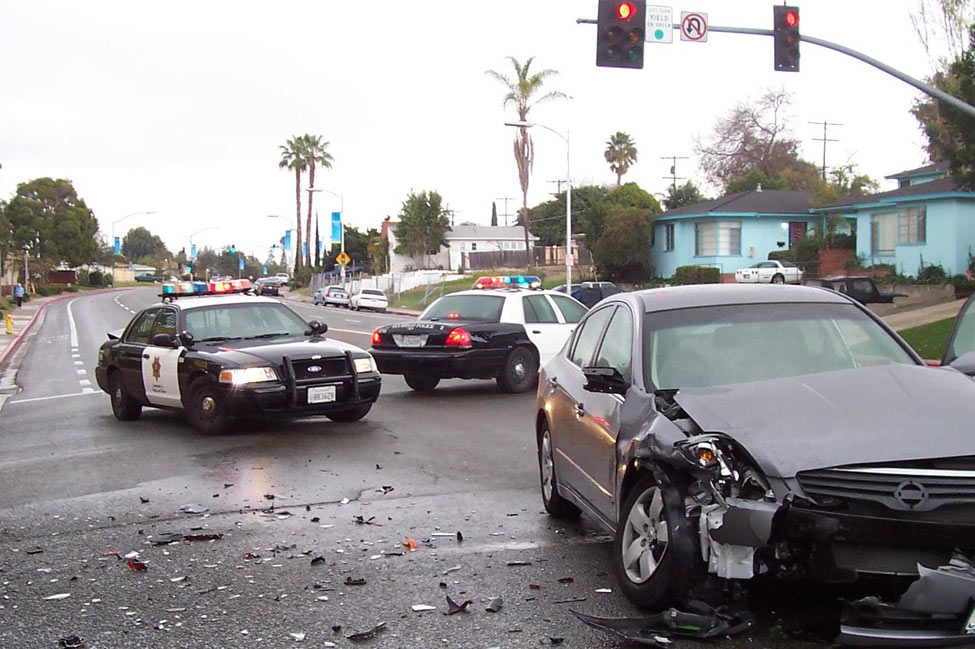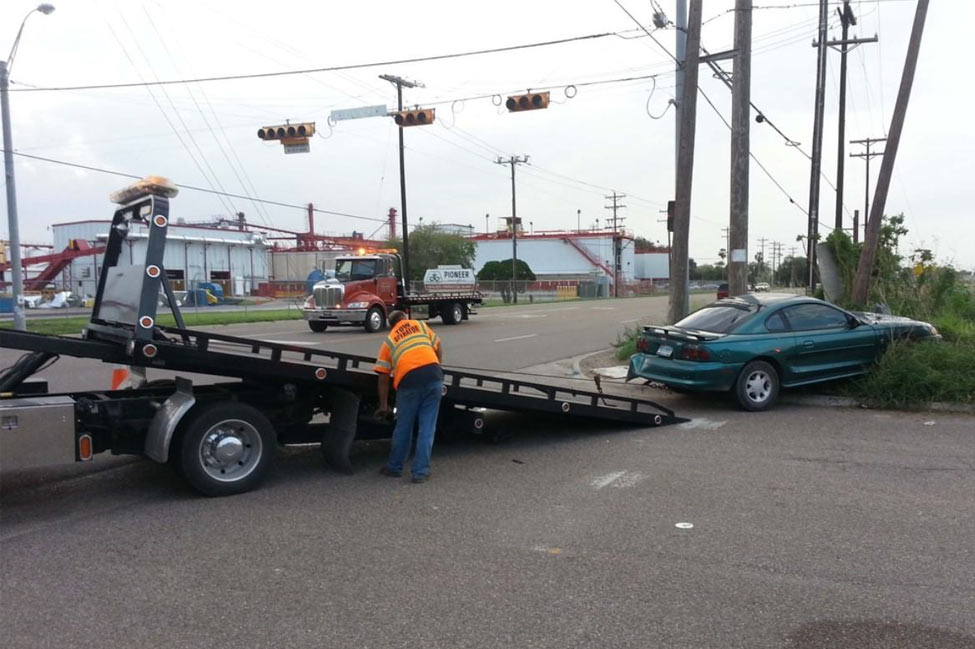Reasons Why Towing Company Rate Caps Are Bad
What exactly is a rate cap in the towing industry? A rate cap is a maximum amount allowable by law that a tower can charge for towing and related services. A rate cap doesn’t necessarily have to be a law. A city can impose a rate cap in the form of a contractual requirement for participation in its rotation system.
Towers all over the country have experienced Rate Caps in one form or another. From private party impounds and non-consensual rotation tows to consensual tows in some areas. They’re all put in place with the idea of protecting the motorist from being gouged by towing companies. But the negative consequences outweigh the positives, and here’s why.
Towing Company Rate Caps Increase Secondary Accidents
A secondary accident can occur for many reasons; it can be the fault of an inattentive driver who’s texting, a speeder who loses control as they top a hill and come upon a stranded motorist or car accident, or it may be a driver on the other side of the highway, looking to get an eyeful of what’s going on. These are all easy targets to point to, but the root cause of the secondary accident is the existence of the first roadside vehicle, be it a primary accident or a stranded motorist.
Many efforts have been made to decrease the number of primary accidents. There are speed limits and laws against texting and inattentive driving. And millions of dollars have been spent in every state to install rumble strips, safer highway entrances and exits, cables between 4-lane highways, and signs that let a motorist know when they’re going too fast.
But what about secondary accidents? What can be done to decrease the number of secondary accidents?
The easy answer to decreasing the number of secondary accidents is removing distractions from the roadway as quickly as possible. And to do that, you need willing tow truck operators available at a moment’s notice.
But when you set rate caps, you’re decreasing the amount of money a tower is allowed to charge for his services—taking away his ability to make a good living and, therefore, his incentive to do the work. When you take away his incentive to participate, you’re decreasing the number of towers available to provide these vital services.
Towing Rate Caps Are Bad Causing Decreased Proficiency
You don’t need to be a rocket scientist to be a tower, but you do need to know a little something about problem-solving. A few years back, I dispatched a new tow truck operator to change a tire on a lady’s Camry. He removed the lug nuts and pulled on the wheel, but it wouldn’t come off. He did everything right but couldn’t remove the wheel from the hub—it was as if they were fused together.
Frustrated, the young man called for help and was instructed by a veteran tower to sit on his hands in front of the wheel (this was in her driveway) and kick the tire on one side and then the other, alternating from side to side to loosen the wheel from the hub. This worked, and he was able to finish the job.
Job proficiency and the ability to problem solve come with time, training, and experience. If those with the knowledge and expertise necessary to do the work leave the industry because rate caps have driven them into other professions—is it really in the taxpayers’ best interest?
The example above was a simple tire change. If, instead, it had been a tractor-trailer on its side, crossing four lanes at drive-time on the interstate, the circumstances would be dire, and you’d want someone who knew what they were doing to solve the problem.
Rate Caps Lead To Fewer Towers During Emergencies
There are those rare occasions when motorists are happy to know that tow trucks exist. No, it’s not when they come out of the grocery store, searching frantically for their car, and realize that they were parked in a tow-away zone. And it’s most certainly not when they’re at fault in a collision and have liability-only insurance.
When are motorists happy to know that tow trucks exist? When they end up 20 feet down an embankment due to white-out blizzard conditions and need help getting out. Only then do they thank their lucky stars that a tow truck just rolled onto the scene.
Rate caps imposed on towing companies decrease the number of tow trucks available to respond when winter weather emergencies make roads impassable. Why would a towing company owner risk his trucks and operators for scraps?
Rate Caps Are One Step Closer to Dissolution
Ronald Regan once said, “Governments view of the economy could be summed up in a few short phrases: If it moves, tax it. If it keeps moving, regulate it. And if it stops moving, subsidize it.”
Merriam-Webster’s Dictionary defines the term regulation as “a rule or order issued by an executive authority or regulatory agency of a government and having the force of law.”
So rate caps, as defined by those in power, are regulations enforced by the government with the stated purpose of stopping towers from gouging taxpayers. But is that their true intention? Are governments really so magnanimous? Or is it that they can’t stand the competition?
Governments grow by increasing their scope. The 13 original colonies became organized to have autonomy and to protect themselves from an aggressor, The Brits—whose reasons for colonizing America were to increase their scope and enrich themselves.
Back during the colonial era, the revolutionaries were a hardy bunch of survivalists who knew about the evils of government. But now, the United States government and every state government are looked to by millions of needy and ineffectual citizens as their only lifeline of support. The masses now DEMAND much more than protection from foreign aggressors. They want cradle-to-grave care—and it’s by design.
Over the last couple of hundred years, governments have steadily expanded their scope from that of protector to that of the provider. And with that expansion, the dependency of the citizens increased to expect more and more—thereby increasing the government’s power.
So it would seem that any attempts to reason with government employees as to the negative effects of rate caps are a fruitless endeavor. The Gubmint now is in a no-lose situation.
- They’ve taxed tow company owners.
- Now they’re regulating us (out of business in some cases).
- The next step is to subsidize us.
But don’t let the term “subsidize” lull you into a false sense of security. A subsidy for those in the towing industry isn’t like giving money to farmers. For the most part, farmers were able to keep their own land, albeit told what they could and could not do with it. But us towers, they’ll just replace us with their own people (government employees). It’s already happened in a few places.
Of course, the argument is that governments won’t take this last step. They won’t go to the trouble of replacing/subsidizing towing companies with a division of the Department of Transportation called “Towing and Recovery.” Because adding more government jobs and buying more trucks and equipment would be a burden on the State.
The term “burden on the State” is absurd. Because by adding more jobs and buying more stuff, the government is getting exactly what it wants, expansion of its scope.
Towing Rate Caps Are Bad For Taxpayers
The real burden will be on the taxpayers. After placing their faith in the government and believing that towing rate caps were put in place to protect them from evil towing companies, once the government is doing all the towing, taxpayers will wake up to the reality that State-Run towing equates to higher taxes, and higher penalties for parking infringements.
Why will it cost taxpayers more money?
Because higher taxes will be needed to fund the new “Division of Towing and Recovery,” and greater penalties will allow for more government expansion. “It’s what’s best for the community at large,” they’ll say.
Rate Caps Increase Insurance Premiums
It’s long been the mantra of insurance companies that rate caps help keep insurance premiums down. Unregulated towing rates rain chaos on actuarial tables, they argue.
But as government overreach increases and opportunities slowly erode from the towing industry, fewer brave entrepreneurs will choose to participate. Consequently, with a decrease in the number of quality towers available to clear accidents quickly, there will be an increase in the incidences of secondary accidents. With more accidents, insurance companies will pay out more in claims.
And as insurance payouts increase, insurance lobbyists will cry foul and call for something to be done. So will begin a huge shift, as government representatives will feel compelled/coerced/incentivized to do something…anything to provide relief.
And with the evolution of towing from a private-sector industry to the public sector, Cities and States will begin to take advantage of this new revenue source.
Then, when the government is in charge of towing, they’ll remove rate caps and increase fees.
Of course, they’ll be forced to make this move because they’ll be required to purchase real estate, trucks, and equipment. They’ll have to recruit, train, and retain tow truck operators, mechanics, dispatchers, and administrative personnel.
And private-sector towing will slowly fade into the annals of history and be replaced with the same type of service one might expect from government employees.






Leave A Comment